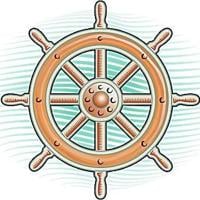Every year on February 4th, World Cancer Day is celebrated as a global solidarity initiative led by the International Union for Cancer Control (UICC).
“By raising global awareness, improving education and promoting individual, collective and governmental action, we can all save millions of preventable cancer deaths and save lives. We are working together to reimagine a world where access to saving cancer treatments and care is equitable for all, no matter who you are or where you live,” UICC says on its website. .
Cancer is devastating, but there is hope for a cure.
For insight into the latest cancer research, the Tillamook Headlight Herald contacted Dr. Flavio Rocha, Chief Physician at Oregon Health and Science University (OHSU) Knight Cancer Institute in Portland.
Curry Pilot: What do you see on the horizon when it comes to cancer research? Is it positive?
Dr. Flavio Rocha: Cancer is nothing new. It has been with us since time immemorial. It’s part of our cell structure. Our cells need to divide, and a defect in that process causes cancer.
It’s hard to say how long that will last, but what’s encouraging is that through profiling we’ve learned more about genetics, improved drug discovery, improved surgical techniques, and improved radiology techniques.
According to the American Cancer Society information released on January 13th, the death rate from cancer has decreased by 33% since 1991, so it looks very promising. It examines all the efforts our cancer community has made, from cancer screening and prevention efforts, to the caregivers who care for cancer patients, to the advocates who support them. It’s a community-wide effort.
We are not there yet, as there will probably be about 2 million cancer diagnoses and about 600,000 deaths next year.
curry pilot: what do we look for? How will I know that I may have cancer?
Rocha: Usually, by the time symptoms of some cancers appear, the ability to heal may be rapidly diminishing. What we are looking for is stool pain and the beginning of blood. We strive for early detection through screening with mammograms, colonoscopies, and prostate-specific antigen (PSA) tests. Not all cancers can be tested. It brings us back to therapy a bit.
curry pilot: What would you advise your family to do when you find out that someone in your family has been diagnosed with cancer? What is the best approach to support those loved ones?
Rocha: This is where we get a lot of help from patient advocates, and there are a lot of charities that are helping, so sometimes support is important, not just treatment. is heavily dependent on the life care system, so colleagues help manage it and determine what the patient’s goals are.
If your family has a history of cancer, screening can make a difference here, so genetic testing is recommended to drill down on that possibility and how it affects other family members. Yes. Pre-tests are not for everyone and come with consequences. A medical advisor can help guide you through the process and explain all that data. Our technology is evolving rapidly and there is so much we can do.
We are not relying solely on chemotherapy. There are now drugs that stimulate the body’s own defenses to treat cancer, which is an incredible advance. These are things you can do to prevent cancer in people who don’t have it.
As technology improves, we also see new ways to detect cancer risk through blood sampling. We can catch cancer early and cure it.
I am absolutely encouraged and positive and this is what keeps us going. We would like to move at a faster pace, but as new technologies are developed, we continue to move forward.
About OHSU Knight Cancer Institute
The Knight Cancer Institute at Oregon Health and Science University (OHSU) became an NCI-designated cancer center in 1997 and was awarded Comprehensive Cancer Center status in 2017. The Knight Cancer Institute is his only NCI-designated comprehensive cancer center between Sacramento and Seattle.
With a mission to end cancer as we know it, the institute is working to significantly improve outcomes for patients with advanced cancer and to increase our ability to detect cancer in its early stages by targeting We are building breakthrough expertise in therapy. From laboratory science to clinical trials of new treatments to studies of at-risk populations, laboratory scientists advance our understanding of the underlying causes of cancer to improve detection, diagnosis, treatment and prevention. I’m finding a way
For more information, contact the OHSU Knight Institute at 503-494-1617.




